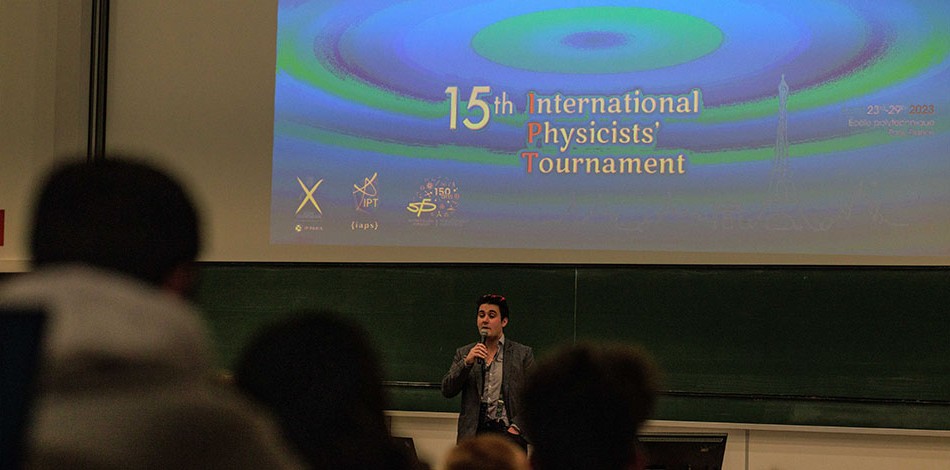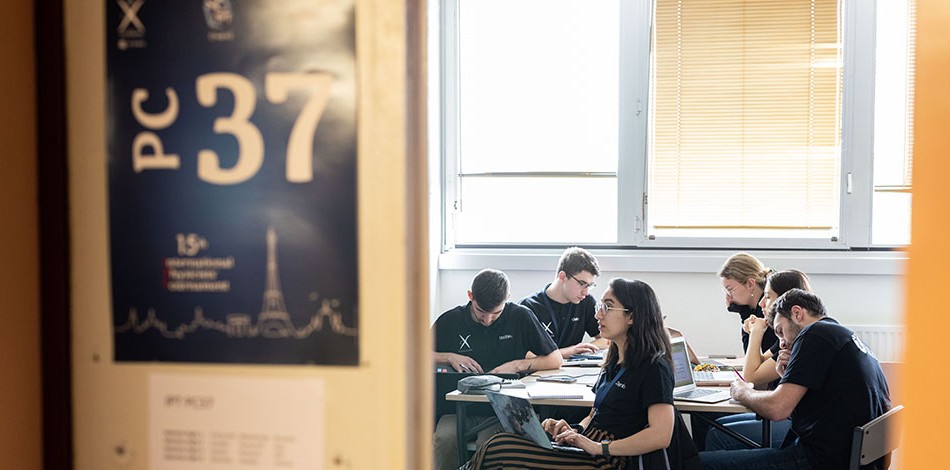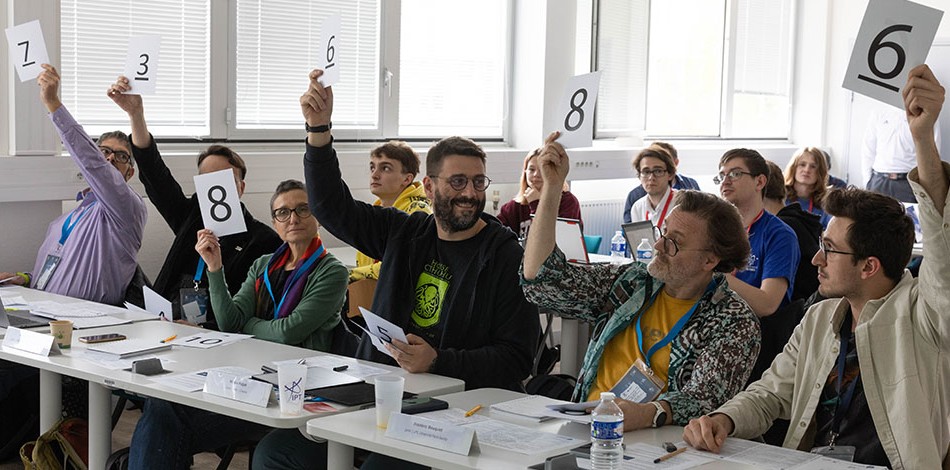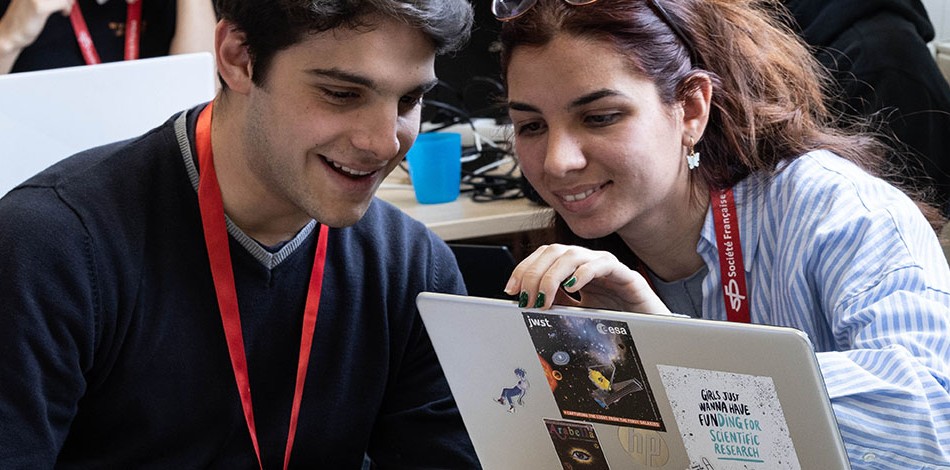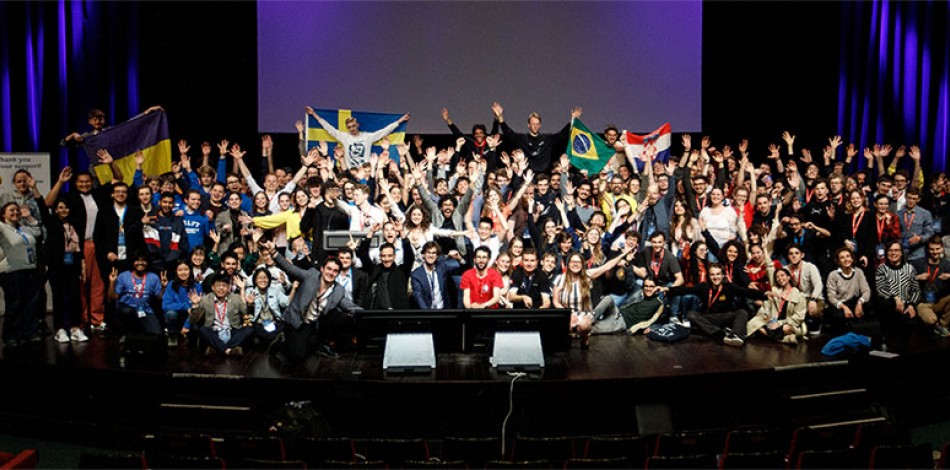L’X hosts the 15th International Physicists’Tournament
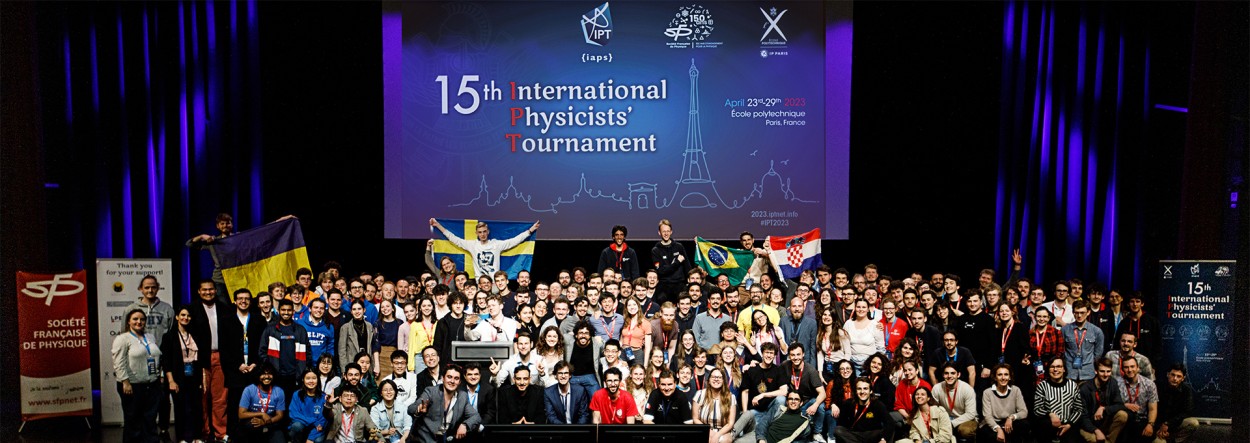
The Physics Department of École Polytechnique, in collaboration with the French Society of Physics (SFP), organized the International Physicists' Tournament (IPT) on campus from April 23rd to 29th.
The event brought together 18 teams of six students from recognized French and international higher education and research institutions in the field of physics.
The team from École Polytechnique, who came in fifth place, was composed of three female students and three male students, all in their second year of engineering studies: Léa Bohbot, Martin Chatel, Matthieu Couturier, Zayneb El Omari El Alaoui, Marine Le Chatelier, and Hugo Schreckenberg. They worked for eight months under the supervision of their mentors, Hector Abel, a PhD student, and Aymerich Gaspard (X18).
"This was the highlight of our year-long work. Being part of a cohesive team, becoming aware of our strengths and weaknesses, and finally being pitted against all the other participants - all of this constitutes a unique experience," explains Martin Chatel, the team captain.
COLLABORATION AND COMPETITION
During the tournament, participants debate an open-ended question that they have studied before the competition. Seventeen problems inspired by daily life were submitted to the expertise of each team. Among the challenges submitted to their acumen: Why is it possible to prevent liquid honey from flowing by simply turning the spoon on its longitudinal axis? What physical parameters allow a Pringles chip crown to be made without glue or any other elements? Or under what conditions do two soap bubbles that collide merge or bounce?
The teams must answer these questions with a strong experimental component, question an existing theory, and work autonomously.
"The Tournament aims to be both a playful time around physics and a training for research careers adapted to students. Allowing them to understand a researcher's life based on collaborative work and emulation," emphasizes Guilhem Gallot, a professor researcher at the Laboratory of Optics and Biosciences (LOB) at École Polytechnique and vice-president of the Tournament.
Guilhem Gallot is one of the main organizers of this edition along with Arnaud Raoux, the national IPT referent, and Thibault Fredon, vice-president of SFP/IAPS (International Association of Physics Students).
The tournament is organized around "Physics Fights". During these verbal jousts, three teams take on different roles. Students take turns presenting their results, constructively criticizing the work of the other group, and moderating the debates. At the end of this scientific marathon, a jury of researchers scores the three performances.
The teams from the University of Warsaw and ENS Lyon won this 15th edition jointly. "I've never seen such a result [in the tournament], we worked hard before and during the competition," said Jakub Trzaska, captain of the Polish team, also paying tribute to his comrades from ENS Lyon.
The 15th edition of the IPT, chaired by Anastasiia Vasylchenkova, brought together participants from, among others, Denmark, Canada, the United States, Brazil, and Sweden. Ukraine and Russia, the originators of the competition, also competed, the former under their colors, the latter under the neutral IPT Team banner.
A gender-balanced team
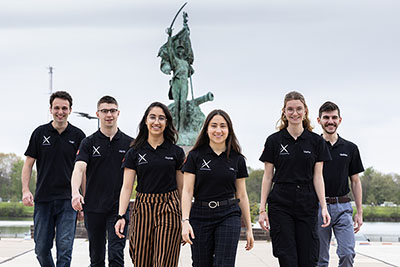
From left to right: Hugo Schreckenberg, Martin Chatel, Zayneb El Omari El Alaoui, Léa Bohbot, Marine Le Chatelier, and Matthieu Couturier.
Among the members of École Polytechnique who participated in the 15th edition of the International Physicists Tournament were three young women: Léa Bohbot, Zayneb El Omari El Alaoui, and Marine Le Chatelier. They competed alongside Martin Chatel, Matthieu Couturier, and Hugo Schreckenberg. The six students in their second year of the Cycle Ingénieur polytechnicien program were defeated in the semifinals.
This gender-balanced team, a first for École Polytechnique, echoes the school's commitment to promoting gender diversity. "Before the national selection, our professors strongly encouraged us [young women] to present ourselves and to overcome self censorship", explains Marine. "Our presence shows girls that they have their place and that they can do it," adds Léa. However, there is no longer any gender issues once the team is formed. "We have never noticed any difference between us or with the other members of the tournament. We are all participants," emphasizes Zayneb. Marine first emphasizes the team's pride in winning first place in the national selection and representing École Polytechnique.
The 17 open questions to be addressed in the tournament are divided among the six young people, some work alone, others in pairs. For training purposes, they are allowed to study under a tailored schedule and benefit from the support of mindful supervisors. "All the equipment we need is at our disposal," adds Zayneb. "It's research work. We conduct numerous experiments, work on theory, and discuss with researchers. We are autonomous," emphasizes Léa.
Two of the main difficulties lie in the lack of time and the creation of a bibliography, particularly around problems that have not been fully investigated by the scientific community. And the experiments are sometimes disappointing. "We can spend whole days on certain experiments that ultimately yield nothing," notes Zayneb.
An exercise in patience that has allowed the three young women to determine what they love doing. Experimental physics for Zayneb, research rather in industry for Marine. Léa is torn between academic and industrial research, but finds inspiration in "a long, intellectually challenging task that we pursue over a long period."
 Support l'X
Support l'X 